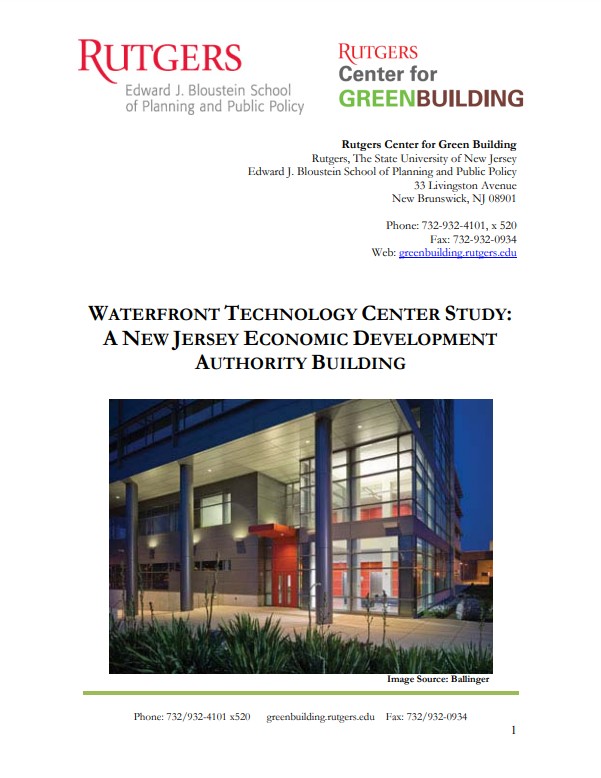This case study is prepared by the Rutgers Center for Green Building (RCGB) and was commissioned by the New Jersey Chapter of the U.S. Green Building Council (USGBCNJ). It is a product of the Green Building Benefits Consortium (GBBC) – a partnership between the Rutgers Center for Green Building and the New Jersey Chapter of the U.S. Green Building Council. The consortium is made up of a broad range of stakeholders in the building industry, including building owners, developers, facility managers, contractors, manufacturers, architects, engineers, green building experts, consultants, investment funds, government agencies and professional associations.
The partnership creates the opportunity for industry stakeholders to guide research on topics of green post occupancy evaluation (POE), such as increased energy savings and enhanced occupant satisfaction and performance, which have the potential to maximize benefits to companies and industries. In addition, a key objective of the partnership is to disseminate efficacious green building
practices through a “lessons learned” framework, while also identifying the challenges of green building.
The case study building is the New Jersey Economic Development Authority’s (NJEDA) Waterfront Technology Center (Tech Center) in Camden, NJ. The NJEDA is committed to “leading by example” in matters of sustainable development and thus is a particularly appropriate case study subject. The building participated in the U.S. Green Building Council’s Leadership in Energy and Environmental Design (LEED) pilot program for Core & Shell and was the first public project in the state to receive a LEED Gold certification. Tenant spaces also achieved LEED-CI Gold certification. This study analyzes physical performance measures in such areas as energy and water consumption, and construction and operation costs, and survey work in the areas of occupant comfort and satisfaction.
